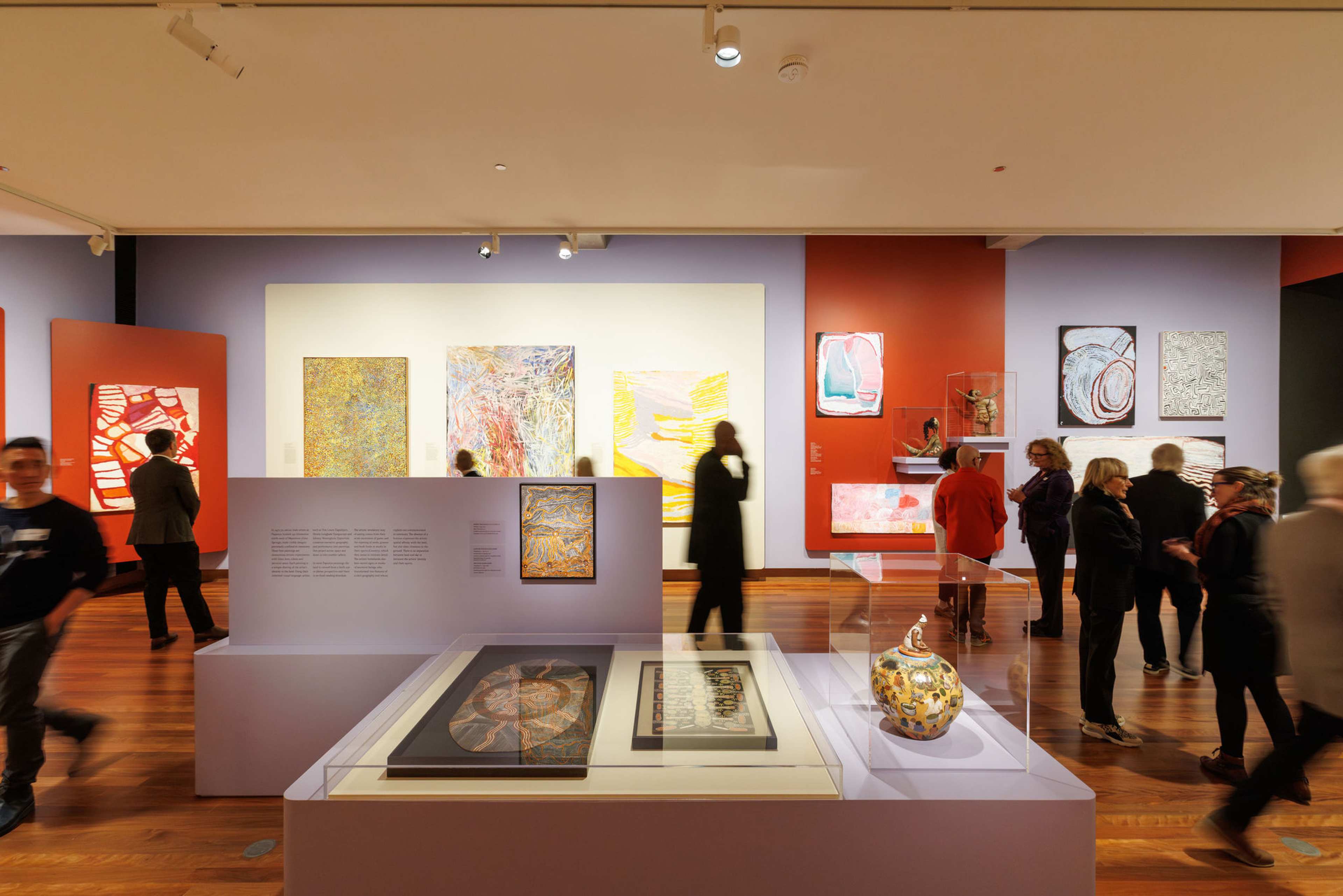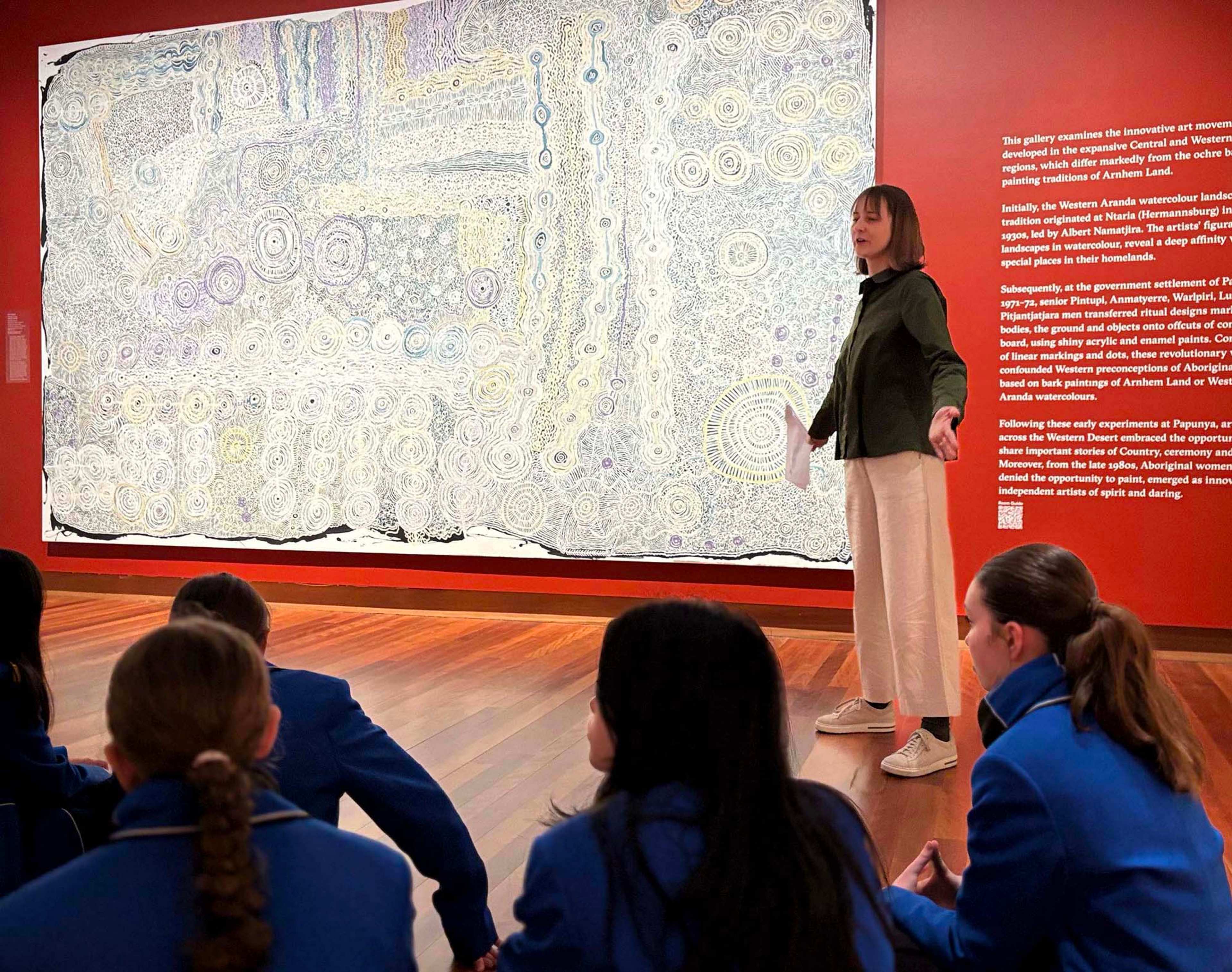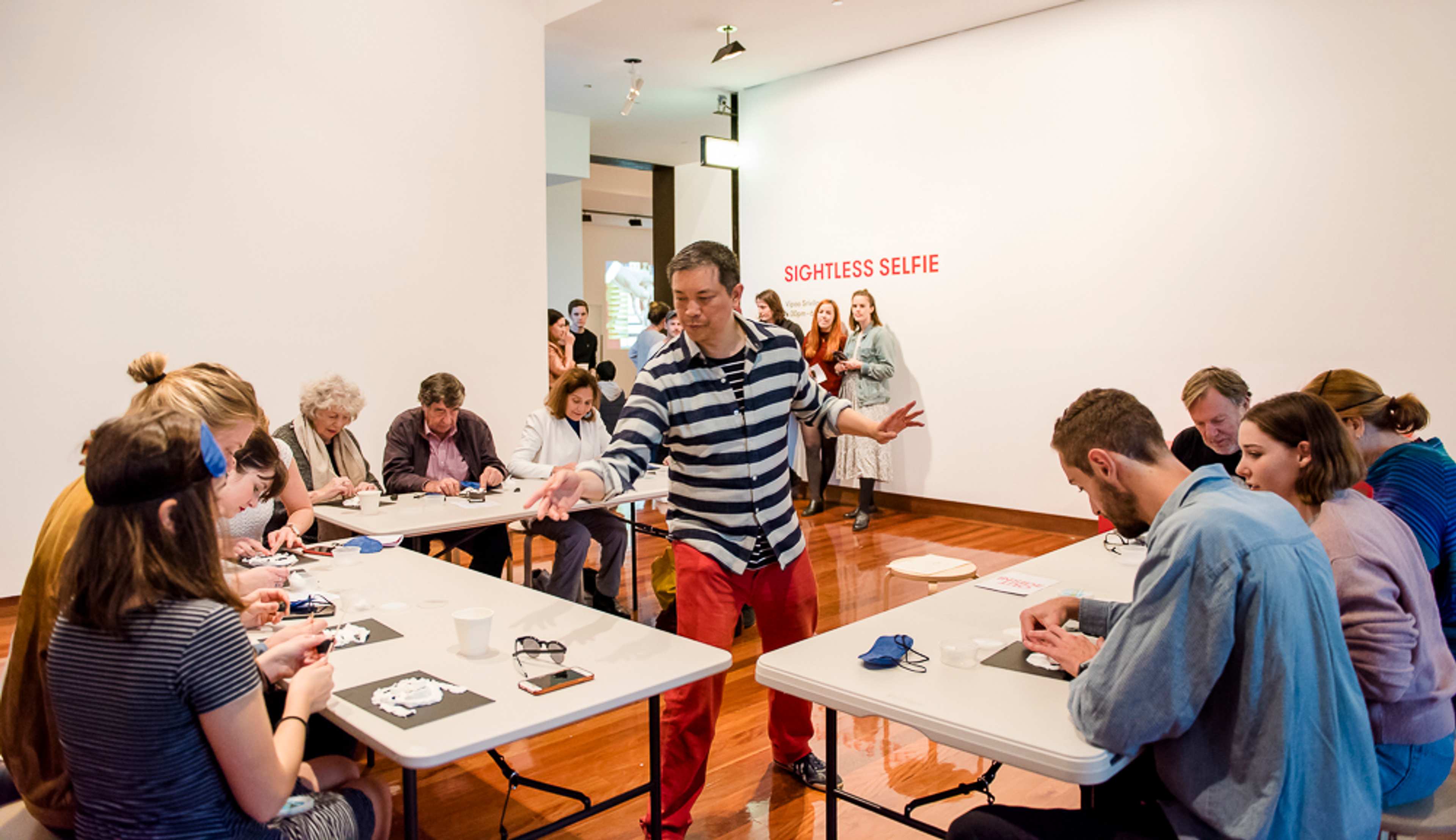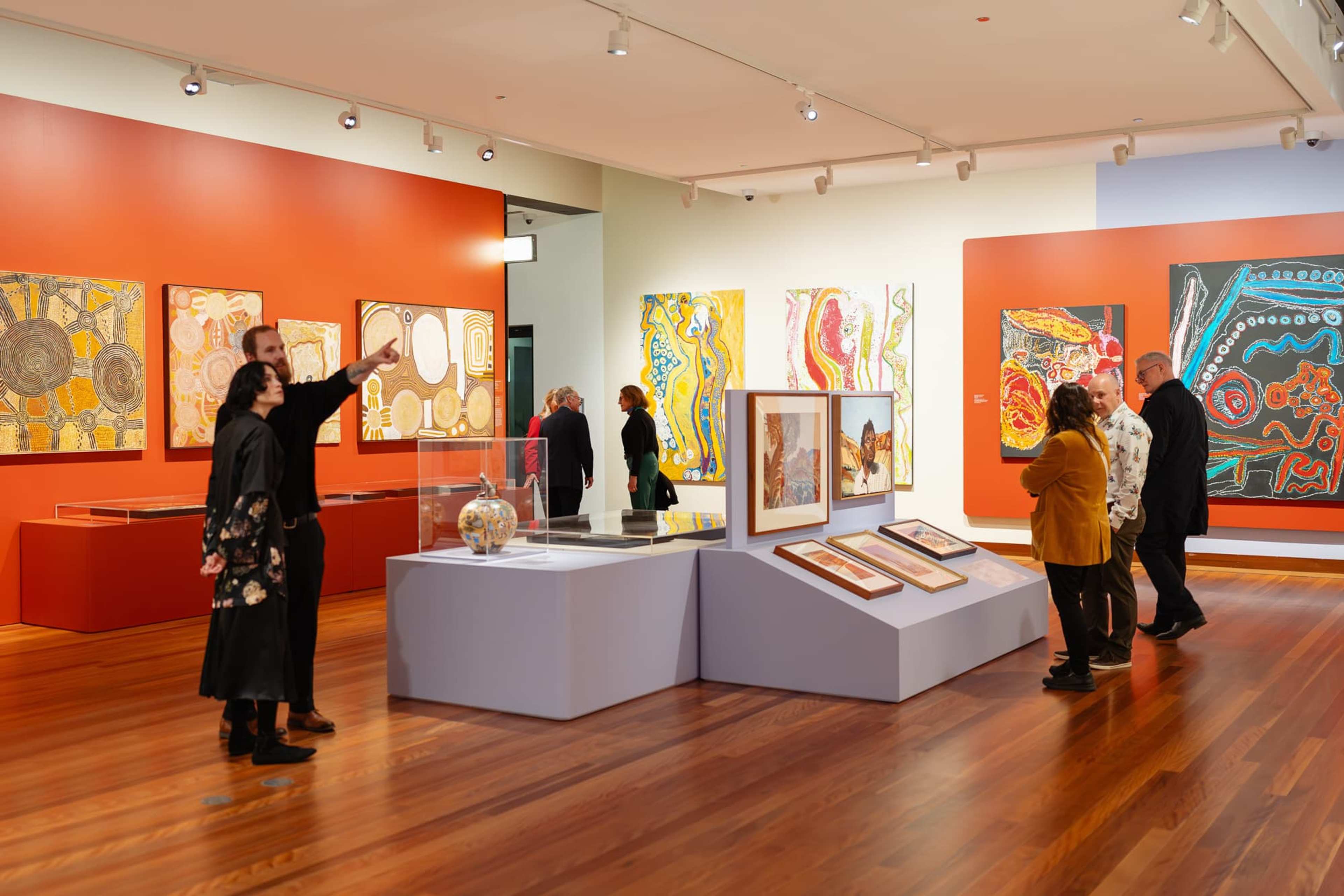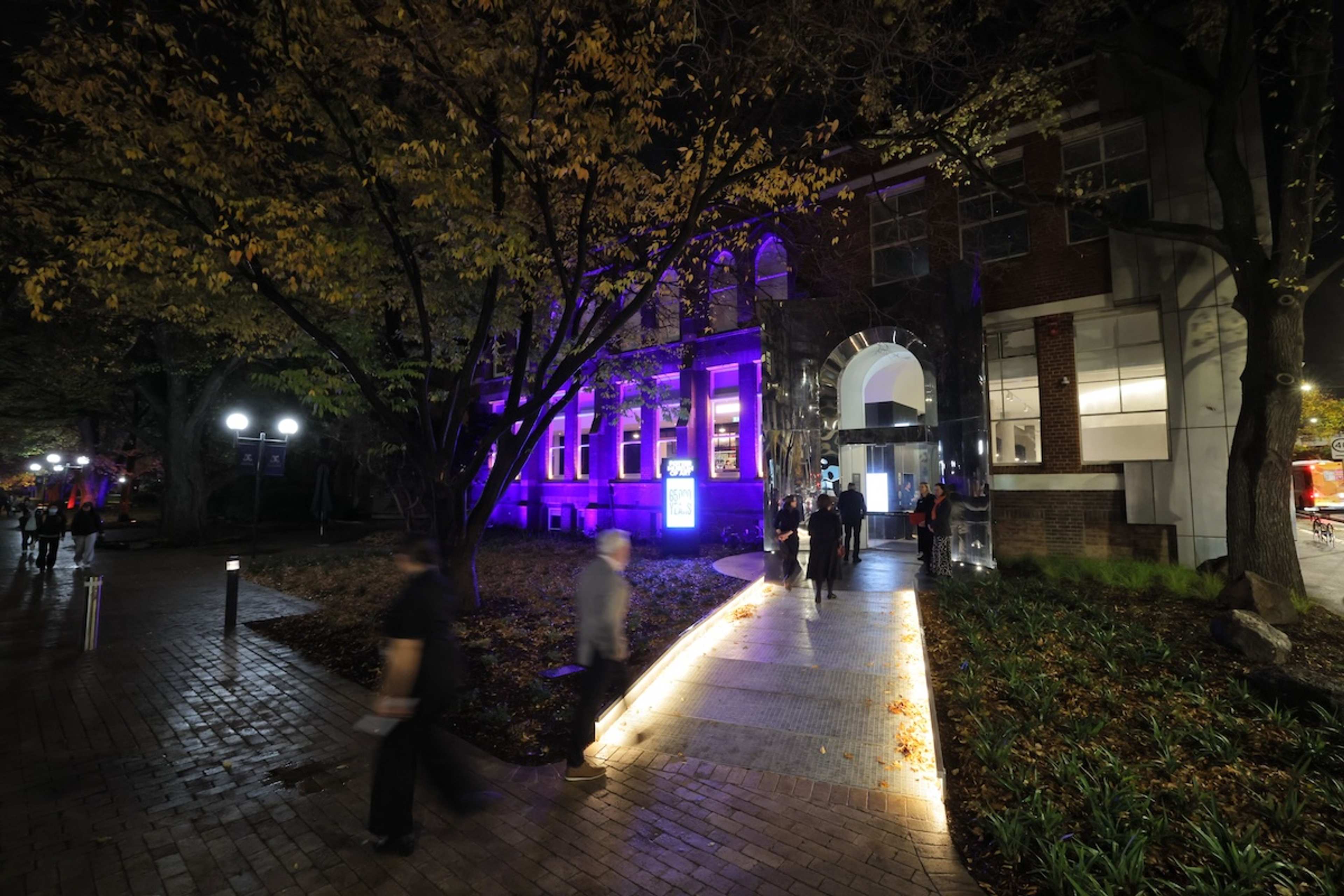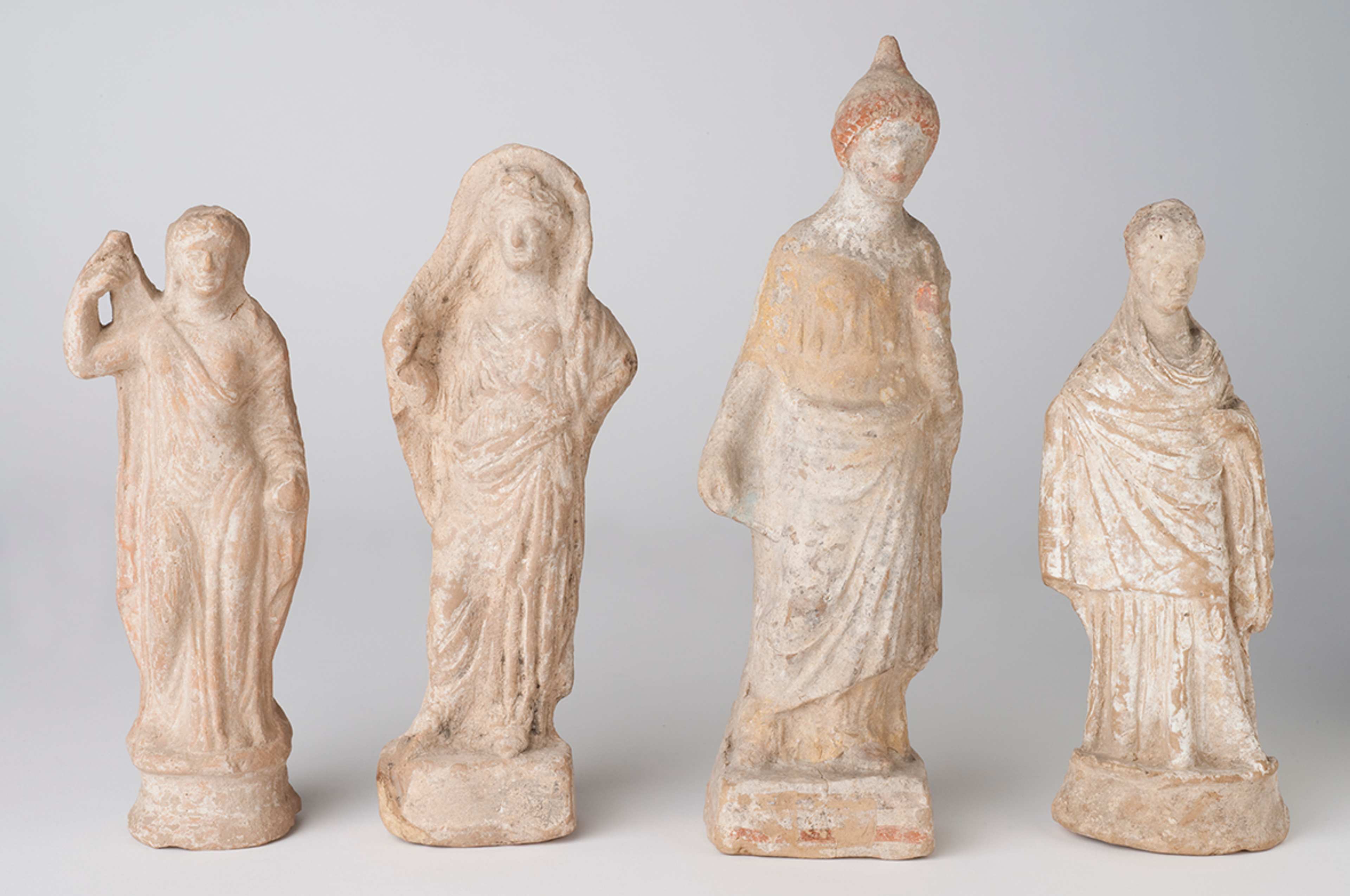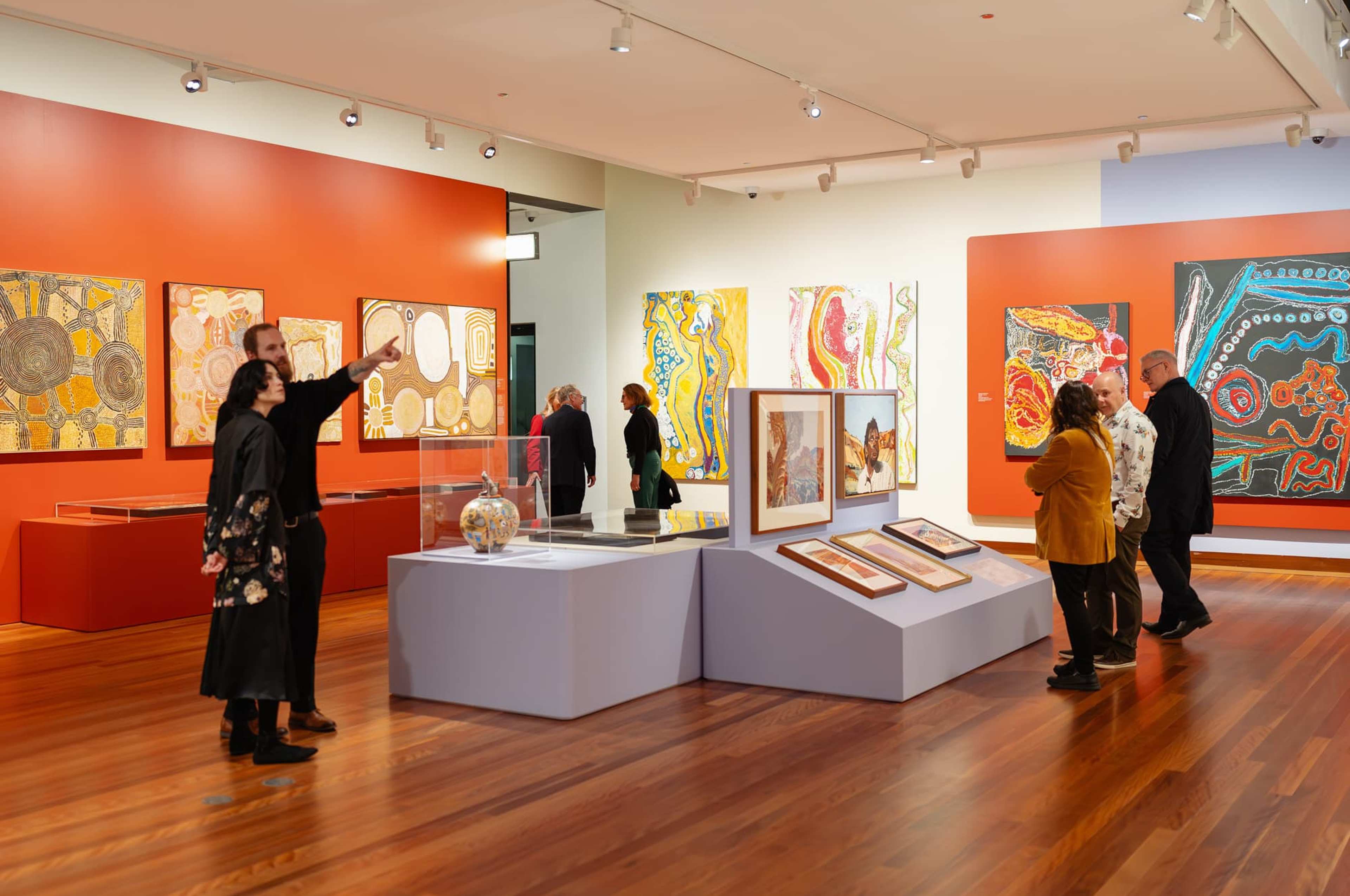What is the Potter?
The Potter engages with creativity and encourages learning through art
Since its founding in 1972, the Potter Museum of Art has been located across a number of sites on the University of Melbourne’s Parkville campus. The current Swanston Street building was designed by Katsalidis Architects and first opened to the public in 1998. After a period of closure between 2018–2024, the Potter reopens in 2025 with an extension designed by Wood Marsh Architects featuring state of the art teaching and learning studios and upgraded social, events and associated amenities—all of which are accessible through a new, distinctive arched entry on campus.
The Potter has supported generations of artists, curators, writers and academics for over fifty years, making a significant contribution to the cultural and social life of the University and its wider community. Looking forward, the Potter’s exhibitions and public programs, fellowships and residencies, research and publishing activities will be thematically focused and interdisciplinary in approach, continuing to centre the voices of artists and art on the key issues and debates of our time.
The Potter is one of the homes of the University of Melbourne Art Collection, with work spanning antiquity to contemporary practice. While the principal focus of the Collection is Australian art, a range of international works include gifts from distinguished alumni and teaching collections that demonstrate the strong connections between the University’s cultural collections and its academic programs. Notable for its breadth, the Collection – now numbering some 18,000 works – is uniquely connected to the University’s history while also responding to our evolving cultural landscape.
Collection-based learning and art-focused education are at the heart of the University’s art museums activities, including at the Potter, where they were first initiated in 2010. Our dedicated Academic Engagement staff engage and collaborate with the University’s academics and students across all faculties, as well as with visiting schools.
Through these activities encouraging active dialogue and debate, the Potter is uniquely positioned to enrich the cultural lives of its audiences.
Old Quad
The Old Quad, located at the heart of the University of Melbourne’s Parkville campus, is the University’s original building, completed between 1857 - 1875. Once home to the earliest lectures and ceremonies, today it is a vibrant cultural hub that welcomes students, staff, and the wider community.
The venue hosts a wide range of events, including public lectures, seminars, performances, and ceremonies, alongside contemporary art exhibitions and displays drawn from the University’s Collections. As part of Museums and Collections, Old Quad is a place where history, architecture, faculty-led research and creative practices meet.

